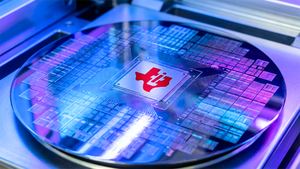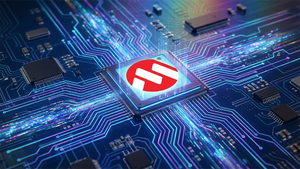The full space is available on Binance Live or the link attached below.
https://x.com/i/spaces/1vAxRDLNWDqGl

1. Can you give us a brief overview of what Node AI is and the mission behind the project?
Absolutely! Node AI is an innovative project built at the intersection of artificial intelligence and decentralized technology. Our core mission is to democratize access to AI by making it open, transparent, and community-driven. In today’s world, AI is often monopolized by large corporations with opaque models and control over user data. We believe that AI should be a public good—accessible to developers, businesses, and individuals regardless of their background or resources.
Node AI leverages blockchain to create a decentralized ecosystem where AI models and data are governed by the community. This means that instead of relying on a single entity to manage how AI is used and trained, we allow the community to propose, vote, and build together. It’s an entirely new paradigm where AI is developed collaboratively and operates in a trustless, fair environment.
We’re building out infrastructure that supports open-source model training, decentralized data contribution, and transparent usage tracking. Whether you’re a data scientist, a Web3 enthusiast, or a curious user, Node AI gives you the tools to contribute meaningfully to the next wave of AI evolution.
2. What inspired the team to merge AI and blockchain technologies, and how do they complement each other in Node AI?
The fusion of AI and blockchain is a response to some of the biggest challenges facing AI today—centralization, lack of transparency, and biased data control. The Node AI team was inspired by the need to build AI systems that users could trust, audit, and co-create. We realized that blockchain provides the perfect foundation for achieving this, thanks to its inherent transparency, immutability, and decentralized governance.
AI models need data and computational power, but they also require trust in how they’re trained and deployed. Blockchain lets us record each step of model training, track the origin of data, and ensure fair rewards to contributors. In Node AI, we use smart contracts to automate governance and create verifiable incentives for users who share data or computing resources.
Moreover, the decentralized structure of Web3 allows us to escape the “walled garden” model where only big players win. In Node AI, contributors get direct ownership and benefits from the AI models they help develop. This synergy between AI and blockchain not only empowers individuals but also leads to more ethical, diverse, and accurate AI systems.
3. How does Node AI ensure data privacy and security, especially in a decentralized environment?
That’s a crucial question because data privacy and security are at the heart of everything we do at Node AI. In a decentralized ecosystem, it’s not enough to just protect data—we must also empower users to own it. Our architecture is built with multiple layers of security and privacy-preserving technologies to ensure that data contributors remain in full control.
First, we use zero-knowledge proofs (ZKPs) and federated learning mechanisms. This means users can contribute data to train models without ever exposing their raw information. The model learns from decentralized nodes where the data stays, and only aggregated learnings are shared—never the private data itself.
Secondly, we’ve implemented NodeVault, a decentralized, encrypted data storage layer. Think of it like a blockchain-native Dropbox for AI training—every data input is tokenized, permissioned, and timestamped. Access control is handled via smart contracts, so users can define exactly who can use their data, how, and for what duration. And most importantly, they can revoke permissions anytime.
In terms of community trust, every action—whether it’s uploading data, accessing a dataset, or training a model—is recorded on-chain. This provides full transparency and auditability. Lastly, our DAO-driven governance ensures that decisions about data usage, access policy, and AI development are made democratically, not behind closed doors.
4. Can you talk about Node AI’s token economy and how users are incentivized to participate in the ecosystem?
Absolutely. The Node AI ecosystem is powered by our native utility token, $NAIT, which is designed to reward meaningful contributions while maintaining a balanced, sustainable economy.
Here’s how it works:
Node AI answered with Yuma Consensus. Designed for massively scalable dynamic intersubjective agreement in adversarial climate, a fuzzy consensus to determine probabilistic truth purely from a set of weights and stake. Translating local weights into the global chain weights.Based on Yuma Consensus,the coexistence of miners, delegators, and validator nodes ensures the incentive balance and stability of this advanced system, preventing it from collapsing due to any extreme situation.
Users who contribute data to our training pipelines receive $NAIT tokens based on the quality, rarity, and relevance of the data they provide. Data is scored via a community validation layer, and the more valuable it is to the AI models, the greater the reward.
Model trainers, who use their compute resources to train or refine models within NodeLab, also earn $NAIT. This creates a circular economy where contributors are fairly compensated, and the network continues to grow stronger.
Moreover, when developers create AI models on our platform and tokenize them as NFTs, they can earn royalties whenever someone uses or modifies their models. This gives creators long-term income potential from their work, something that’s often missing in centralized AI environments.
Another subtle but significant feature of Node AI is the decoupling of Stake ownership and access to development/business opportunity. Stake can freely delegate to accepting Validators, giving them control over Stake weight and access bandwidth, allowing them to utilize and participate in Node AI on Stakeholder’s behalf. Validators take a currently hard‐coded 18% cut on Stake dividends accrued from setting weights.
Lastly, $NAIT holders can participate in DAO governance—voting on feature development, funding allocations, and policy decisions. So you’re not just earning; you’re shaping the future of Node AI with every token you hold.
By constraint to a unifying consensus, Node AI makes the stake‐weights‐reward distribution circuit game‐theoretically viable. Laying the foundations for generalized, permissionless, economically scalable peer‐to‐peer programmable incentives.
5. What is the long-term vision of Node AI, and where do you see the project heading in the next 3–5 years?
Our long-term vision is to become the foundational layer for decentralized AI globally—a permissionless platform where anyone, anywhere can build, deploy, and benefit from AI technologies without intermediaries. We aim to challenge the dominance of centralized AI giants by creating an open alternative that prioritizes community, transparency, and ethics.Node AI’s overarching vision,directing the power of digital markets towards society’s most important digital commodity – Artificial Intelligence. Not only to build the most powerful intelligence network, but also to ensure that the benefits and the ownership of machine intelligence are in the hands of mere mortals. Bottom up, rather than top down.
In the next 1–2 years, we’ll be focusing on expanding our developer tools and growing our ecosystem partnerships, especially in regions where AI accessibility is still limited. We’re also working on cross-chain integrations, so Node AI models can be deployed on multiple Web3 platforms seamlessly.
By year 3, we envision Node AI powering AI Dapps across industries—healthcare, DeFi, education, and gaming—each one built collaboratively and governed by its users. We’ll also be expanding our educational initiatives to onboard the next wave of AI-native builders through workshops, hackathons, and grants.
Ultimately, our goal is not just to be a platform, but a movement. One that redefines how AI is built, who owns it, and who benefits from it.
6. What role does the community play in the growth and direction of Node AI?
The community is not just important to Node AI—it is Node AI. From day one, we designed the platform to be community-first. That means every major feature, governance vote, or protocol upgrade involves active participation from our users. Whether you’re a data contributor, model trainer, researcher, or token holder, you have a voice.
Through our DAO (Decentralized Autonomous Organization), community members propose ideas, vote on funding allocations, and shape the roadmap. For example, some of our recent initiatives—like the AI NFT marketplace and ZK-powered data pools—were born out of community proposals.
We also run monthly community feedback sessions, bounty programs, and dev grants. These ensure that innovation flows in from all directions, not just from the core team. Our approach is inspired by open-source principles: the best ideas come from the crowd, not the top-down.
What’s really exciting is watching how community members go from being users to builders, partners, and even core contributors. Our role as a team is to nurture that growth and provide the infrastructure and support to bring their ideas to life.
7. Are there any exciting upcoming milestones or partnerships we should look forward to?
Yes, we have some major milestones and partnerships lined up that we’re incredibly excited about. First off, we’re gearing up for the launch of Node AI 2.0, which includes enhancements to NodeLab, the debut of our AI Agent Framework, and deeper ZK integration to protect user anonymity during model training.
We’re also partnering with several Layer 1 and Layer 2 blockchain to bring Node AI’s capabilities cross-chain. This means our AI models will soon be usable on other major networks, massively increasing utility and adoption.
On the partnership front, we’ve recently entered collaborations with decentralized storage leaders and data marketplaces, which will unlock new datasets for the community to train with. And yes—there’s a major partnership with an AI-focused hardware provider in the works, aimed at optimizing decentralized computers across our network.
Of course, it is important to note that we have reached a consensus with institutional partners who recognize our mission and have successfully completed a multimillion-dollar funding round. This will provide a solid financial backing for NodeAI’s subsequent technological research and development as well as ecosystem expansion.
Lastly, we’re planning our first Node AI Hackathon Series to scout new talent and drive dApp development on our stack. We’ll be offering grants, token incentives, and exclusive incubator support for the most promising builders. So if you’re a dev, researcher, or Web3 founder, this is your moment to dive in.
More info
Website: https://www.nodeai.work
TG: https://t.me/NodeAIOfficial
Disclaimer: The information provided in this press release is not a solicitation for investment, nor is it intended as investment advice, financial advice, or trading advice. It is strongly recommended you practice due diligence, including consultation with a professional financial advisor, before investing in or trading cryptocurrency and securities.



